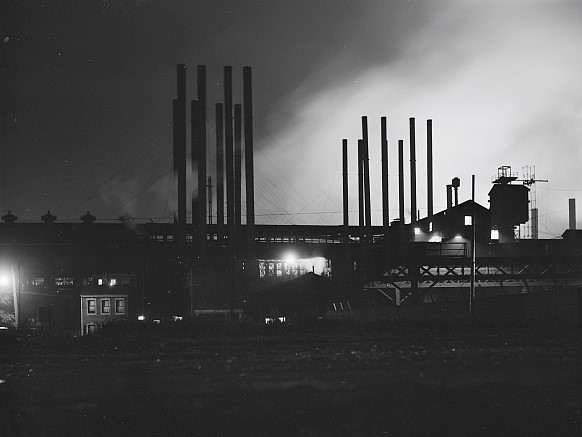
The Deceptive Inevitability of the Way Things Are
A key trait of many organizers and advocates is the ability to question why the established world is the way it is and to have the creative capacity to envision an alternative. This isn’t creativity in the K-12 school sense—can you make up a short story, can you draw a picture of a fantasy creature—but a more subtle kind that involves making tweaks to the familiar and mundane.
A key trait of many organizers and advocates is the ability to question why the established world is the way it is and to have the creative capacity to envision an alternative. This isn’t creativity in the K-12 school sense—can you make up a short story, can you draw a picture of a fantasy creature—but a more subtle kind that involves making tweaks to the familiar and mundane. I couldn’t write a creative story to save my life, but I do like to imagine how the world around me could be cleaner (what if every house on my block had solar panels?), or safer for people not in cars (how could this intersection be redesigned to prioritize pedestrians?), or more sustainable (what if food packaging included data on the amount of water used to produce that food?).
Thinking critically is the next step: what are the forces that have shaped the current world, creating problems and keeping us from that better vision? In the New Yorker earlier this month, Ian Frazier writes that years ago, he recognized that plastic bags were a problem, but never wondered why there were so many, never worked backward from a vision of bag-free trees to how such a thing might be accomplished.
The challenge in organizing is to communicate that vision and rally people around it. But it starts with the imagination. Here’s an excerpt from Frazier’s piece:
Veteran readers of this magazine may recall that I have written about plastic bags before. My first piece on the subject appeared in 1993. At that time, the bags had begun to vex me, flapping in the city’s trees. In 1994, I reported here that my friend Tim McClelland and I had made a device with tines and a hook, attached to a long pole, to snag the bags and remove them. Tim and his brother Bill and I then went all around the city and beyond, year after year, snagging bags and other debris out of trees.
After Tim moved to Massachusetts, Bill and I, both in commuter-range New Jersey, kept up our city bag-snagging but did it less frequently. We aged; the bags seemed to become only more numerous. A key moment of discouragement for me was when we went to Los Angeles to help with a cleanup of the L.A. River. As we were snagging bags in palm trees with many spines on them, a young man watching said, “Those bags are like gum in dreadlocks.” In my bones I felt the painful aptness of the simile.
It now strikes me as remarkable that, wrestling with the enormous problem of bag litter in trees, we did not consider that it could be stopped at the source. In fact, the thought never crossed my mind. I accepted plastic bags as an inevitable natural phenomenon, as if we were farmers battling scourge-of-God locusts on the Great Plains. Perhaps the privatizing spirit of the era had blinded me. Lone and unattached as the bags we pursued, we were concerned individuals expressing ourselves. Maybe we also offered a symbol of anger and resistance. But we were attacking one at a time, or three at a time, when a full assault at division strength was what the situation needed….
I can no longer imagine the world without plastic, but I believe it’s possible that one day we will see a New York City without bags in the trees. The consumer world always changes. Twenty-three years ago, when Bill and Tim and I started hitting every borough in the city, taking bags out of trees, the second most common debris we removed was videotape and audio-cassette tape. Bill even cleaned some of the tape fragments and spliced them together and played them. The result was a deranged audio-visual presentation, a chaotic howling, a head-banging nightmare. Now that nightmare seems very nineties. You almost never see videotape or cassette tape in trees, or anyplace else, nowadays.
Topics
Authors
Elizabeth Ridlington
Associate Director and Senior Policy Analyst, Frontier Group
Elizabeth Ridlington is associate director and senior policy analyst with Frontier Group. She focuses primarily on global warming, toxics, health care and clean vehicles, and has written dozens of reports on these and other subjects. Elizabeth graduated with honors from Harvard with a degree in government. She joined Frontier Group in 2002. She lives in Northern California with her son.
Find Out More

Beyond the politics of nostalgia: What the fall of the steel industry can tell us about the future of America

Bumbling toward utopia

What’s wrong with the systems we rely on?

